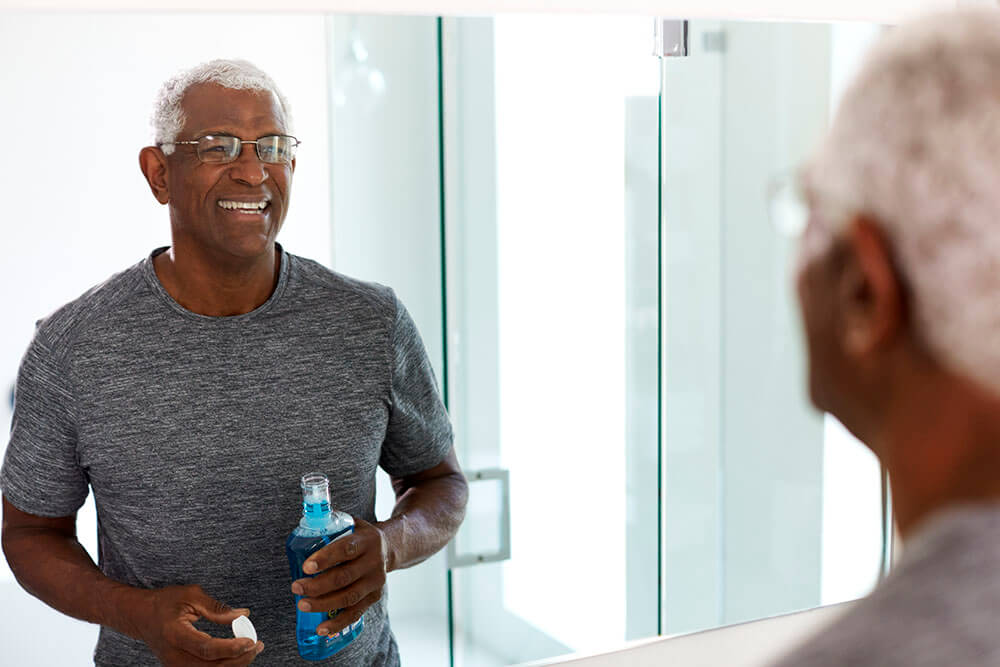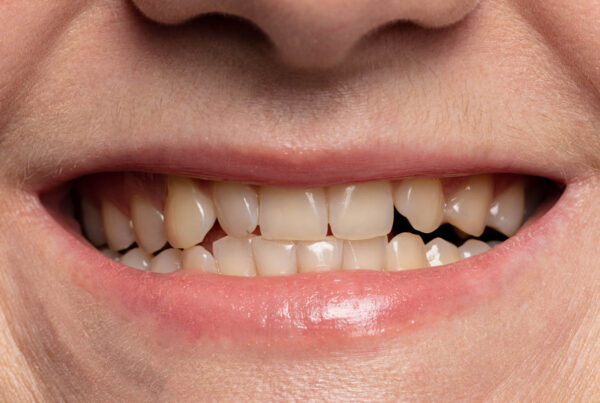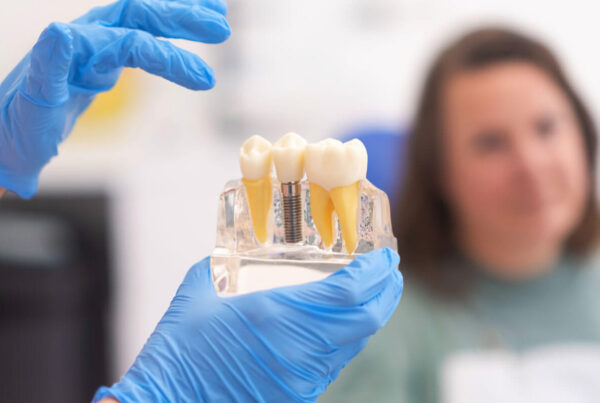Are you looking for ways to improve your oral health? You’ve come to the right place.
A good dental hygiene routine is very beneficial to your overall health, especially when thinking about the future.
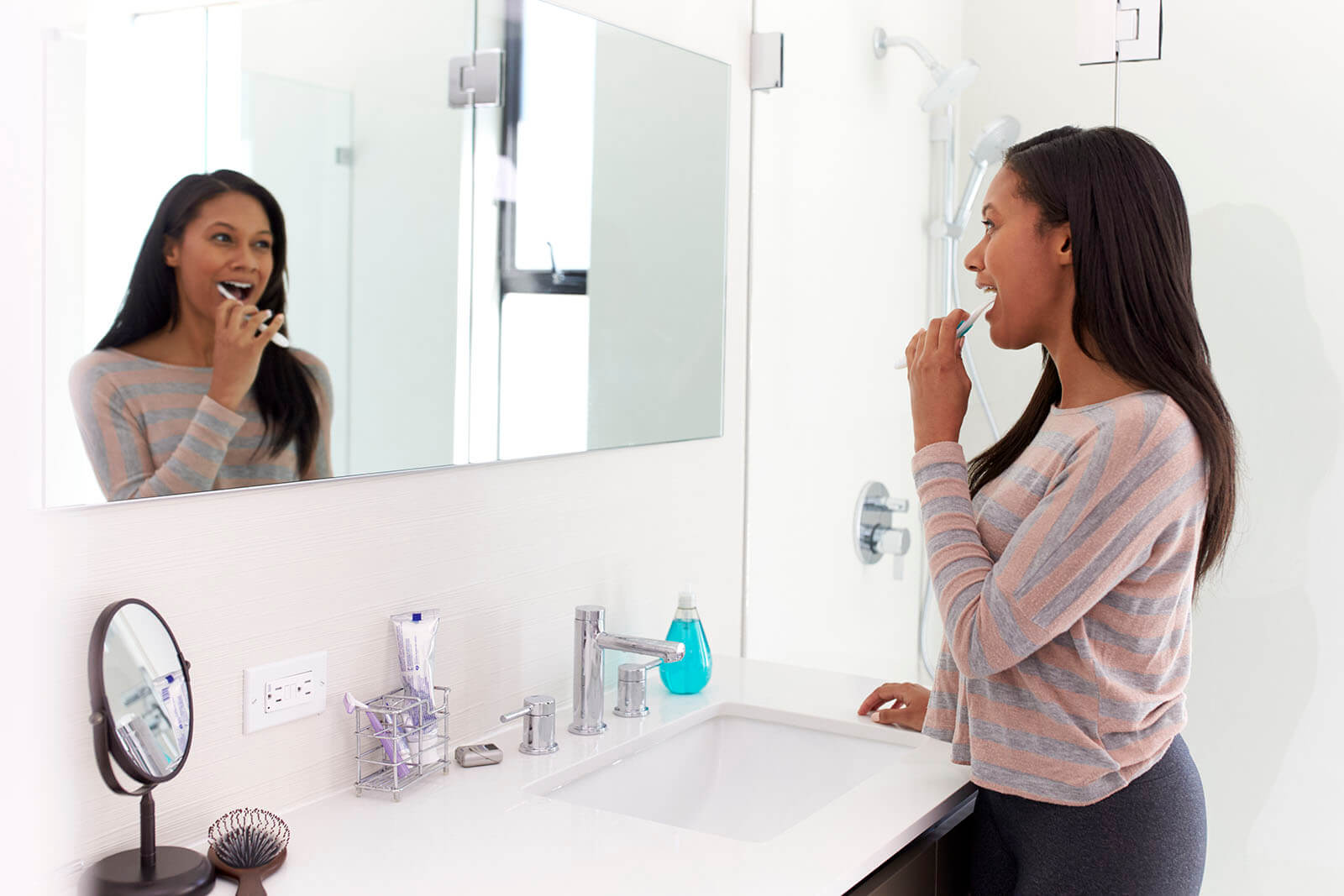
First, let’s first establish that you have a good base of a proper daily oral care routine.
This includes brushing twice a day and flossing once a day, along with rinsing with mouthwash. When you brush your teeth, you should be doing it in a circular motion, without too much pressure, and being sure to brush each surface of every tooth – front, back and top. A toothbrushing session should last 2-3 minutes.
There are several things you can do during your regular routine that will improve your oral health.
Your toothbrush can make a difference in your oral health. Choose a toothbrush with soft bristles. If your bristles are too hard, it’s easy to brush too hard, leading to enamel loss and receding gums. An electric toothbrush is a great choice.
If you aren’t already, you should be brushing your tongue when you brush your teeth. Less commonly talked about, you could also include brushing the inside of your cheeks and the roof of your mouth with your toothbrush.
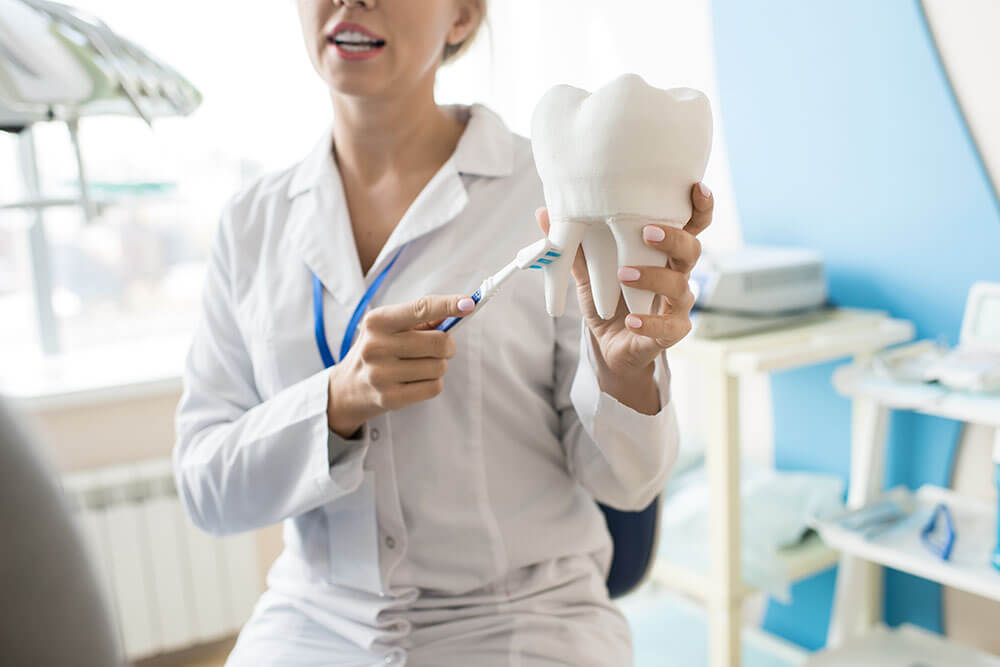
When choosing a toothpaste, be sure it includes fluoride which works to prevent tooth decay. Also, it’s a common mistake to use too much toothpaste – all you need is a pea-sized amount.
You should be flossing at least once a day. To improve your oral health, consider flossing after each meal. If you’re going to floss just once a day, it’s best to do it before bed along with your nightly brushing. If you avoid flossing because your gums bleed when you do so, don’t let that stop you. When you continue flossing, it will become easier and less painful. The more you do it, you will start to notice the benefits over time, as you’ll start to notice less bleeding and it will no longer be painful. If you can’t floss due to dental work or sensitive gums, you could try using a waterpik instead. Waterpiks work by shooting a stream of water over your gums and teeth to dislodge and remove any food particles left over from brushing.
Mouthwash works by reducing the amount of acid in the mouth, cleaning hard-to-brush areas in and around the gums, and re-mineralizing the teeth. It’s a good idea for anyone to use mouthwash, but it can be especially beneficial for people who aren’t able to floss.
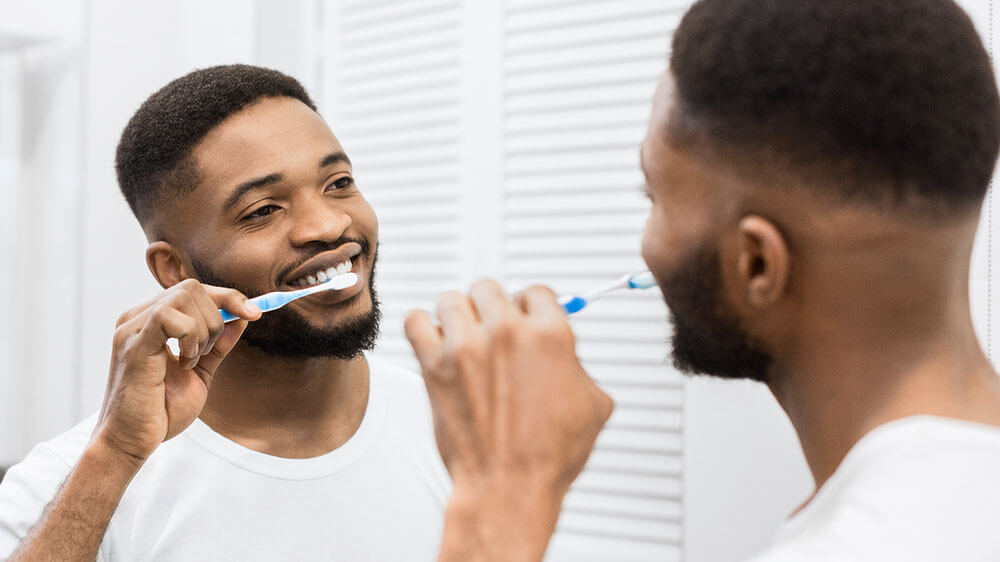
There are also things you can do outside of your dental hygiene routine.
Drink more water. You probably hear it all the time. Water is good for so many things when it comes to our health. Drinking water after a meal can help clear any leftover debris from your mouth and decrease the acidity in your mouth.
Focus on eating a healthy diet that includes fruits, vegetables, grains, chicken and fish. Eating fresh, crunchy produce not only contains more healthy fiber, but it’s also the best choice for your teeth. Avoid soda and other sugary drinks, which can lead to a higher risk for cavities.
Get more sun. Specifically, get more Vitamin D – which you can get from supplements or exposure to the sun. Both Vitamin D and calcium help keep teeth and gums strong.
If you’ve been reading our blog each month, then you already know how important it is to see your dentist regularly. Your routine visit to the dentist should include a professional cleaning, which should be done at least twice a year. We recommend at least every 6 months as a general rule. Not only will this help you keep up on oral hygiene, it can also help with preventative maintenance and early detection of any potential issues. If you don’t have your next appointment scheduled, contact us today.

